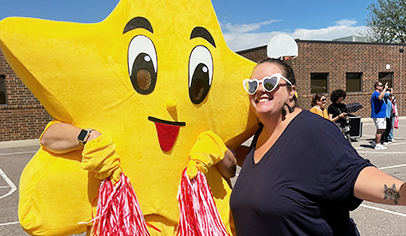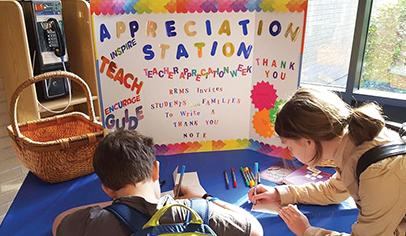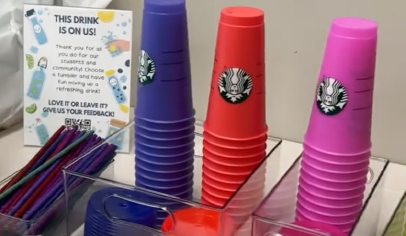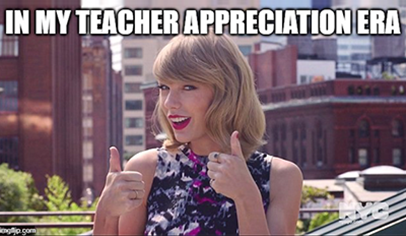Last year, the Hampstead Elementary School PTA in Maryland had two goals: to replace the schools aging playground equipment and to install a state-of-the-art wireless computer lab. Toward those ends, children tromped through the rural town hawking candles and drumming up participants for runathons, all contributing to a $60,000 take to fund the climbers, swings, and keyboards.
Little did the children or their parents know, however, that as fast as the money was coming in, it was going out. In July, just as the PTA's treasurer was finishing his two-year term, he was arrested for stealing more than $62,000 from the organization. The staggering loss has put the school's long-awaited projects at risk. The situation at Hampstead is an example of one of the biggest but least-discussed threats to parent groups: embezzlement.
Principal Monica Smith told a local newspaper that when she had to tell her fundraising committee chairs about the embezzlement, they looked like someone had died. "There was shock, sadness, and now when I talk to them, theyre angry—and they have every right to be angry," she said.
That anger is fueling local prosecutor Melissa Hockensmith, who's handling the case, in which John N. Biggs faces 39 charges of theft. "The kids earned this money, and there's a good lesson we can show them," says Hockensmith. "You can't take someone's hard-earned money and just get away with it."
There's a good lesson for parent groups to learn, as well. Embezzlement is a fact of life. "This problem is pervasive," says veteran fraud investigator Joseph Whall, managing director of the Whall Group in Auburn Hills, Mich., who's seen cases in everything from church groups to multinational corporations.
As Enron and WorldCom dominate the business pages with financial scandals that run into the billions of dollars, volunteer groups have to recognize the risks to their own organizations. Any group that comes into contact with money, whether it's a Fortune 500 company or a PTO, needs to safeguard its assets. Clear bylaws, sound policies and procedures, and consistent checks and balances are essential for even the smallest of PTOs. Some groups have developed these plans in the wake of financial scandals at their schools. Others have had the foresight to head off problems by developing the policies before a crisis occurred. Leaders in both situations agree that it is easier to create the practices before a loss happens than it is to explain to the children that their money has disappeared.
The Fraud Triangle
Fraud is as common as a virus and can be just as menacing. Like illness, you can take all the precautions against it and still get sick, but you can substantially reduce your vulnerability.
In the 1950s, a sociologist named Donald R. Cressey developed a theory of why people commit fraud. His "fraud triangle" is still the most widely accepted explanation for what motivates seemingly trustworthy people to embezzle. The three points of the triangle are motive, opportunity, and rationalization.
First, a person needs to have a motive or need. That could range from trouble making mortgage payments to envy of the PTO president's new Lincoln Navigator. "Statistics show that given the opportunity, a large percentage of American people will take advantage of the opportunity to embezzle, provided they have the motivation," Whall says. "It could be troubles from a divorce or drug or alcohol abuse. In one case I had, it was jealousy over the size of a desk."
Second, the person must have a tempting opportunity. It could be while she is collecting admission fees to the PTO's fall festival, counting the proceeds alone, or balancing the PTO's books with no one looking over her shoulder.
The last leg of the triangle is rationalization: a way to make the theft seem excusable or temporary. For example, a person might take money during one financially troubled month so he can pay his mortgage, with every intent to pay the money back next month. However, next month his finances aren't any better, so he takes a little more and tells himself he'll pay it back next month. And so on. Another form of rationalization is to believe that the money won't be missed, such as, "It's only $100, and we're earning so much at this auction."
The most successful fraud-fighting tactics dismantle one of the legs of the fraud triangle. PTOs can't do anything about members' personal financial needs, but they can remove the temptation to steal by eliminating situations in which any one person will be alone with money and by ensuring that multiple sets of eyes are always watching the books.
"You have to have fiscal controls and checks and balances so no volunteer is ever out there alone handling large sums of money," says Helen Little, an association consultant based in Naperville, Ill., and the author of Volunteers: How To Get Them, How To Keep Them.
Checks and Balances
There are a variety of fiscal controls and checks that PTOs have implemented to stave off thievery. In addition, organizations are using insurance, along with just plain common sense, to make sure all the money they're raising for schools is going where it is intended.
Require two signatures on every check. No one person should have the authority to issue PTO checks. At the Northwest Elementary School PTO in Pflugerville, Texas, all checks must carry the signature of the treasurer and the signature of the PTO president or the principal. "The policy helps the treasurer," says past President Joy Hall Bryant. "She can tell people, 'No, I can't just write you a check.' "
Use financial request and reimbursement forms. Similarly, no PTO member should be reimbursed for out-of-pocket expenses and no bills should be paid until a member fills out a form detailing what the money was used for and produces receipts. "Even if we approve in a meeting that were going to buy 15 microscopes, when the invoice comes in, somebody still has to fill out that cover form and put it with the invoice," Bryant says.
Implement cash controls. Don't put money in Tupperware containers. Don't let members take money home. And ideally, don't even leave cash at school overnight. These may seem like common-sense rules, but they are routinely violated by tired volunteers who are closing up an evening event and just want to go home without counting up the money and making a bank deposit.
Another hard-to-follow but simple rule is to never leave people alone with money. "We always have two people present to receive cash," says Bryant. That means two people sit at a table to sell tickets. And two people count the money at the end of an event. After the money is counted, each person signs a "funds received" form and puts the money in a locked box for the treasurer.
At the Thomas Jefferson School PTO in North Arlington, N.J., only board members are allowed to count cash. "If there's a money problem, it's the board members who are responsible," says President Kim Costello. "Before we created that rule, there were way too many hands touching the money."
Use tickets for cash events. To protect cash collected for admissions to events, it's wise to issue a ticket to every person who attends. That makes it easier to count how many people came through the door and to project how much cash should be collected. Volunteer consultant Helen Little suggests collecting tickets in a fishbowl and choosing one or several to win a door prize. That encourages everyone to turn in their tickets and yields an accurate count. There will rarely be an even match between tickets sold and tickets collected because not everyone will turn in his ticket. However, if the cash has been collected accurately, there should be more money collected than tickets counted. If not, a red flag should go up.
Create a finance committee. Every group should have a finance committee that reviews all transactions monthly. Helen Little recommends this committee include the president and at least two board members. Each month, the committee should review bank statements for accuracy.
Conduct annual audits. Audits are essential to make sure all the numbers truly add up. At the Thomas Jefferson PTO, an audit committee reviews the books annually. Each year, the committee has at least three members who match every financial request form with every receipt. After the volunteer committee finishes its review, the books are then handed to a paid certified accountant who checks its work.
Write down the rules. Some PTOs have been hesitant to create or carry out cash controls because board members are nervous about offending volunteers. But clearly explaining policies and procedures in writing prevents people from feeling singled out or mistrusted. "We have a one-page form on cash policies and procedures," says Bryant. "We can easily hand it to a volunteer, so they won't feel insulted."
Costello acknowledges that it was "touchy" when her group first required financial request forms for any reimbursements. "Everybody said that they weren't going to take anything," she recalls. "But we stressed that we needed the paperwork for the audit committee. That made people feel more comfortable."
Get bond insurance. Even well-crafted cash controls and regular audits cannot protect every PTO from theft. That's where fidelity bonds come in. Fidelity bonds insure that if any money is stolen, it will be recovered. The most common bonds are $10,000 bonds. If a PTO had a $10,000 fidelity bond and $10,000 was embezzled, the bond would ensure that all the money would be replaced. Fidelity bonds also come in $25,000 and $50,000 policies. And even larger bonds can be written for groups that handle greater amounts of cash.
Some insurance companies insure specific PTO officers, such as presidents and treasurers. Some PTOs have balked at those policies because they require intense background and credit checks. Occasionally, elected officers don't pass muster for bond insurance and are forced to resign. Blanket policies, which cover anyone who comes in contact with money, do not require background checks of any members. Those policies also ensure that if a new officer is appointed midyear, the group doesn't have to apply for a new fidelity bond. PTO Today's insurance program offers great rates on blanket insurance coverage for parent groups.
The Hampstead Elementary PTA did carry bond insurance. It had a $25,000 bond, which means that some of its $62,000 loss will be recouped quickly. Although the school's computer lab project has been temporarily put on hold, the PTA is forging ahead with plans for the new playground. Several neighboring parent groups have offered to help out financially, and despite the group's loss, the new climbers and swings are expected to be in place this fall.
Facts on Fraud
- The average fraud scheme lasts 18 months before it is detected.
- The most common method for detecting fraud in the workplace is through tips from employees, customers, vendors, and anonymous sources. The second most common method of discovery is by accident.
- The typical fraud perpetrator is a first-time offender. Only 7 percent of fraudsters in a recent survey had prior fraud convictions.
Source: Association of Certified Fraud Examiners
A Nationwide Problem
Embezzlement from parent groups is not limited to any one region. It has been an equal-opportunity problem, striking groups from coast to coast. There have been dozens of cases just this year. Among them:
- Corpus Christi, Texas: The president of the Sanders Elementary School PTA allegedly bought groceries and cashed two checks worth about $2,000 by forging other officers' signatures. She was caught when she forged the name of one PTA officer on a check at a grocery store, then handed the check to a cashier who was that officer's sister.
- St. Petersburg, Fla.: A PTA treasurer was accused of embezzling $15,000 from the George Lynch Elementary School. The defendant was also charged with trying to defraud police during the course of their investigation.
- Monroe, Ohio: A treasurer accused of stealing $16,000 from the Monroe Elementary School turned herself in to police.
- East Rockaway, N.Y.: A treasurer is accused of stealing $16,000 from the PTA at Center Avenue Elementary. She had a previous conviction for stealing $24,000 from a gun shop nearly a decade before.
- Angola, Ind.: A treasurer allegedly embezzled $20,000 from the Carlin Park Elementary School by forging checks.
- East Providence, R.I.: A treasurer for the Rumford PTA has been accused of stealing $24,000 over a three-year period. The same defendant was also accused of embezzling $1,600 from the town's Martin Middle School while serving as its treasurer.
Sources: Corpus Christi Caller-Times, St. Petersburg Times, Cincinnati Enquirer, Village Herald, News-Sun, Evening Star, Pawtucket Times
























